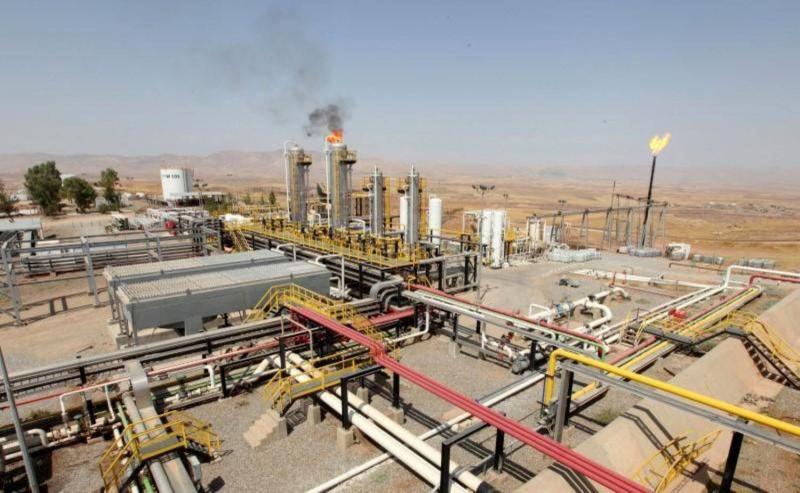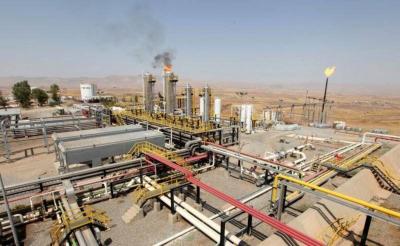While the crisis of delayed salary payments to public sector employees in the Kurdistan Region of Iraq continues, the area of conflict between the regional government in Erbil and the federal government in Baghdad has increasingly widened, this time through the lens of oil.
In a sharp statement released yesterday, the Ministry of Oil in the federal government of Baghdad held foreign companies operating in the oil sector in Kurdistan responsible for the halt in exports through the Iraqi-Turkish pipeline since March. The ministry stated that "an entity calling itself the Association of Oil Industry in Kurdistan (ABiCor) has engaged in a type of distortion of facts and several fallacies," referring to the narrative surrounding the halt of oil from the Kurdistan Region following the international arbitration ruling issued on March 25, 2023.
In its detailed and lengthy statement in response to "ABiCor," the ministry asserted that "the suspension of oil exports through the Iraqi-Turkish pipeline was due to a Turkish decision that came as a result of the issuance of the international arbitration ruling from (the Paris Chamber of Commerce) in favor of Iraq, and that the export did not stop— not for a single day— due to a federal Iraqi decision."
The "federal oil" ministry also touched on a part of the responsibility of the Kurdistan regional government in Erbil regarding the crisis, stating that "the oil contracts concluded by the region with the ABiCor consortium have never been approved by the federal government or the federal oil ministry at all, lacking the proper constitutional and legal basis."
It continued, saying that "the ministry requested the Kurdistan regional government and the oil companies operating therein to provide complete copies of all contracts for the purpose of studying them and reaching new contracts in accordance with the constitution and the law, yet the requested contracts have not been submitted until now. So how can this ministry be held accountable for contracts it has not seen and does not recognize, which are in principle contrary to binding judicial decisions?"
According to previous agreements made between Baghdad and Ankara, the Iraqi Oil Marketing Company (SOMO) is the sole entity authorized to export Iraqi oil and market it internationally. "ABiCor," a coalition of 8 companies operating in the oil sector in Kurdistan, exports 50% of its oil to Turkey and claimed in its statement that "the Iraqi government has not taken significant steps to open the Iraqi-Turkish oil line and resume oil exports from the Kurdistan Region, despite Turkey announcing in October 2023 that the line is ready."
The Ministry of Oil confirmed that "one of the key reasons for the current stop in export is the refusal of the foreign companies operating in the Kurdistan region of Iraq to officially deliver their production to the regional government, to be exported in accordance with the prevailing federal budget law, including the companies affiliated with the association (ABiCor)."
It added that "the export can be resumed in a short period if those companies deliver the oil produced from the fields located in the region per the law."
The ministry’s statement highlighted what observers consider to be one of the main issues of oil contracts in the region, which pertains to "calculating production and transportation costs equivalent to the average that this ministry pays in its contracts, where the average production cost is $6.9 per barrel, while the companies operating in the region demand three times this amount (in addition to the inflated transportation fees) as a condition to resume the delivery of the produced oil."
The ministry noted that the House of Representatives adopted the $6.9 production cost per barrel for the federal budget accounts "due to the council or any other federal entity not being aware of the contracts." Moreover, the costs demanded by the companies "include what they call paying previous debts of billions of dollars; amounts that are unknown to the federal government and do not align with borrowing protocols as per the constitution and applicable laws."
The ministry reiterated its previous affirmations to "immediately resume exports in accordance with the law through the Iraqi-Turkish pipeline while simultaneously negotiating towards a comprehensive amicable solution that achieves the public interest. However, the companies continue to refuse unless they first submit to their legally violating conditions, something that cannot be accepted under any circumstances."
The statement from the Ministry of Oil concluded by accusing the statement from "ABiCor" of being "a blatant interference in Iraqi internal and external sovereign affairs that has no relation to the workings of the companies, and that constitutes an additional violation on the part of the mentioned association and the companies it represents, inconsistent with the principles of good faith and foreign investment practices."
### Billions in Losses
The "ABiCor" Companies' Association stated in its statement on Sunday, marking one year since the suspension of oil exports from the region, that "it has caused losses totaling billions of dollars to the Iraqi government, the Kurdistan regional government, and international oil companies." It emphasized that "neither it nor the companies involved received any proposal from the Iraqi and regional governments to resume oil exports."
It pointed out that "all eight member companies in (ABiCor) are committed to their contracts with the Kurdistan regional government and continue to negotiate with the relevant parties to reach an agreement and resume oil exports through the pipeline between Iraq and Turkey."
Previously, Kurdistan exported 450,000 barrels daily to Turkey to secure its employees' salaries and financial revenues due to the absence of a law for oil and gas that regulates the management of oil wealth in Iraq. However, the Kurdistan Region's oil exports without consulting the federal government, and without committing to deliver what amounts to 250,000 barrels to Baghdad as per the federal budget law, caused deep problems between the two sides, reflecting catastrophic repercussions on the living standards of the region's residents after the federal government refused to disburse their salaries since 2015 unless the region fulfills its financial commitments towards Baghdad.
The issue of salaries for the region's employees remains one of the major contentious issues between Baghdad and Erbil, especially following the Federal Court's directive obliging both Baghdad and Erbil governments to deposit salaries exclusively in federal banks (i.e., pay them to employees via bank accounts and salary cards), prompting the regional authorities to object. However, observers expect the regional government to accept the federal government's conditions to ensure the payment of salaries for its employees, who have been protesting for months, particularly in Sulaymaniyah, against the delay in receiving their salaries.




